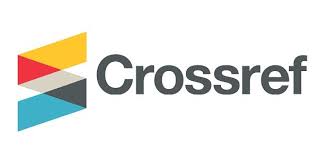IMPLEMENTATION OF CRIMINAL SANCTIONS AGAINST COMPANIES THAT DO NOT PAY BPJS EMPLOYMENT DUES (Study : Putusan Pengadilan Negeri Sumedang Number 109/Pid.Sus/2017/PN.Smd)
DOI:
https://doi.org/10.33061/wh.v27i2.5205Keywords:
Default BPJS Contribution, Contribution Calculation, BPJS ProgramAbstract
This research aims to open wide to the public, especially the workforce about the implementation of laws related to employment and provide examples in relation to the implementation of labor protections whose rights have been lost, so that in the future workers who experience similar things can act to fight for their rights and for companies, this can be a reminder to always carry out their obligations. The method of writing in this study uses normative juridical, by producing findings that violations of the law related to employment often occur such as workers who cannot claim the employment social security program as labor rights as a result of the company's negligence, namely the non-payment of dues by the company to BPJS Employment, enforcement related to it has been done even though the inplementation of the criminal sanctions is still relatively few but there has been progress reflected in the use of the article to ensnare one of the companies that collect but do not deposit dues in the Sumedang State Court in Decision No. 109 / Pid.Sus / 2017 / Pn.Smd, so this becomes an example that labor is very guaranteed by the state.
References
Ali,M.S. 2016. Metode Penelitian Hukum. Jakarta: SinarGrafika
Andi Hamzah. 1985. Pengantar Hukum Acara Pidana Indonesia.Jakarta: Ghalia Indonesia
Barda Nawawi Arief,2008.Kebijakan Hukum Pidana Perkembangan Penyusunan Konsep KUHP Baru.Jakarta: Kencana Prenada Media Group
P.A.F.Lamintang, 1994. Dasar-Dasar Hukum Pidana Indonesia.Bandung :Sinar Baru
R.Soesilo.1980. Kitab Undang – Undang Hukum Pidana (KUHP)Serta Komentar-Komentarnya Lengkap Pasal Demi Pasal, Bogor: Politeia
Soerjono Soekanto.1983.Pengantar Penelitian Hukum .Jakarta: UI Press
Sutan Remy Sjahdeini. 2017.Ajaran Pemidanaan: Tindak Pidana Korporasi&Seluk-Beluknya.Jakarta :Kencana
Wirjono Prodjodikoro. 2003. Asas-asas Hukum Pidana di Indonesia. Bandung: Refika Aditama
Yesmil Anwar & Adang.2008.Pembaruan Hukum Pidana Reformasi Hukum Pidana, Jakarta: Kompas Gramedia
Ratri Novita Erdianti. 2019. Kedudukan Korporasi Sebagai PelakuTindak Pidana Di Indonesia. Malang: UMM Press
Act/Law
KUHP (Kitab undang - Undang Hukum Pidana)
KUHAP (Kitab undang - Undang Hukum Acara Pidana)
Law No 13 of 2003 on regulation Ketenagakerjaan
Law No 24 of 2011 on regulation Badan Penyelenggara Jaminan Sosial.
Law No 40 of 2004 on regulation of Sistem Jaminan Sosial Nasional
Government Regulation No 46 of 2015 on regulation of Penyelenggaraan Program Jaminan Hari Tua
Mahkamah Agung Republik Indonesia Regulation No 13 of 2016 on regulation Tata Cara Penanganan Tindak Pidana Korporasi
E- Journal
Nurfatimah Mani. Perlindungan Hukum Bagi Pekerja di Perusahaan yang Tidak Membayar Iuran BPJS.https://journal.unair.ac.id,diakses Access on 3 September 2020,15.52 WIB
Bambang Ali Kusumo.Pertanggungjawaban Korporasi dalam Hukum Pidana di Indonesia.http://ejurnal.unisri.ac.id Access on 10 Desember 2020, 02.56 WIB
Website
https://www.kejaksaan.go.id/berita.php?idu=1&id=11944 Access on 29 Desember 2020,06.39 WIB
Downloads
Published
How to Cite
Issue
Section
License
Copyright (c) 2021 Isnaini Apri Dawati, Lusia Indrastuti, Endang Yuliana Susilowati

This work is licensed under a Creative Commons Attribution-ShareAlike 4.0 International License.
Authors who publish with this journal agree to the following terms:
- Copyright on any article is retained by the author(s).
- The author grants the journal, the right of first publication with the work simultaneously licensed under a Creative Commons Attribution License that allows others to share the work with an acknowledgment of the work’s authorship and initial publication in this journal.
- Authors are able to enter into separate, additional contractual arrangements for the non-exclusive distribution of the journal’s published version of the work (e.g., post it to an institutional repository or publish it in a book), with an acknowledgment of its initial publication in this journal.
- Authors are permitted and encouraged to post their work online (e.g., in institutional repositories or on their website) prior to and during the submission process, as it can lead to productive exchanges, as well as earlier and greater citation of published work.
- The article and any associated published material is distributed under the Creative Commons Attribution-ShareAlike 4.0 International License
















.png)


